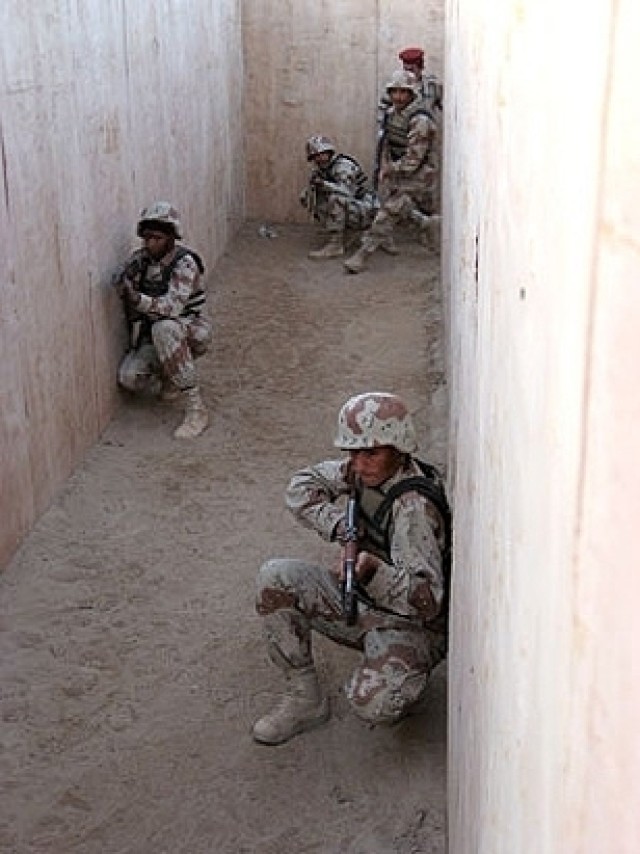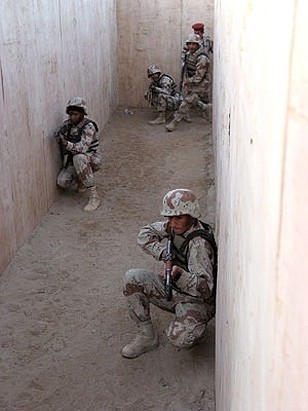TAJI, Iraq, (American Forces Press Service, Nov. 27, 2006) - The Regional Training Center in Taji has implemented urban warfare training as part of the basic combat training that all Iraqi jundis, or privates, go through before their assignments throughout the Army.
Fighting in an urban environment is somewhat of a new concept to the Iraqi Army. As one of the course instructors, who asked not to be identified for security reasons, said through an interpreter, "The concept of teaching a team to clear a room is a new (idea) for the Iraqi Army - it has never been done before."
According to course officials, urban warfare training, in a nutshell, involves entering a building, dominating the battle space physically and psychologically to meet mission objectives and exiting the building safely. "Soldiers are learning techniques that could save their lives," the instructor commented.
He said the jundis are developing their situational awareness techniques by performing scenarios that help them react intuitively in critical circumstances. One such scenario is the man-down exercise, where Soldiers learn how to react when one of their team members is wounded or killed.
Another area of emphasis in urban warfare training is the concept of basic human rights. A subject that, according to U.S. Army Lt. Col. Walter Easter, senior coalition advisor at the RTC, " ... has been embraced by the students because it applies in their personal lives and in their relationships with their families and friends."
The training center leaders ensured all course instruction is standardized so Soldiers can eventually integrate into units throughout the country and seamlessly perform their duties, regardless of location or unit.
This course, and others at the RTC, is part of the Prime Minister's initiative to expand the Army by 30,000 troops. With a rotation of 750 soldiers every six weeks, the center will eventually train a total of up to 6,750 per year at the current rate.
As the Iraqi Army's new training has evolved to provide an educated and leadership-capable force, it is also changing in other areas that impact future combat readiness.
"Now, the soldier has sufficient food, a good uniform he can be proud of and adequate living conditions," said the Iraqi instructor. "That these basic needs are met and not a constant worry to him, enables the soldier to focus on the training and discipline that will help him achieve mastery of the instruction."
The instructor said he is optimistic about the development of a strong, professional army and how it can affect the relationship between Iraq and the United States.
"I have a hope that this is the first step towards the future," he said. "That Iraq will be a safe country for everybody and that America and Iraq will (remain) a team."


Social Sharing